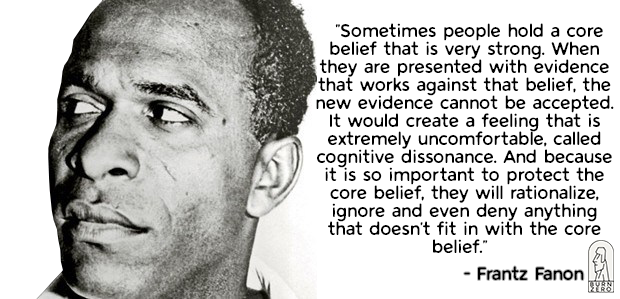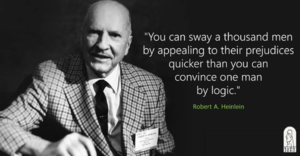Cognitive dissonance
In an ideal world, rational people who encounter strong new evidence that contradicts their beliefs would evaluate the facts and change their views accordingly. But that’s generally not how things go in the real world.
Partly to blame is cognitive dissonance which is a physical pain that can kick in when people encounter evidence that runs counter to their beliefs. Instead of reevaluating what they’ve believed up until now, people, due to this pain tend to reject the incompatible evidence. Psychologists call this phenomenon belief perseverance and everyone can fall prey to this ingrained way of thinking.
Being presented with facts — whether via the news, social media, or one-on-one conversations — that suggest their current beliefs are wrong causes people to feel threatened. This reaction is particularly strong when the beliefs in question are aligned with your political and personal identities. It can feel like an attack on you if one of your strongly held beliefs is challenged.
Confronting facts that don’t line up with your worldview may trigger a “backfire effect,”[1] which can end up strengthening your original position and beliefs, particularly with politically charged issues. Researchers have identified this phenomenon in a number of studies, including ones about opinions toward climate change mitigation policies and attitudes toward childhood vaccinations.
This gets worse with age as neuroplasticity diminishes and changing our minds becomes increasingly difficult. Whilst cognitive dissonance in society is fine in regard to innocuous issues such as what is the best football team to support, when it comes to more pertinent issues such as what action to take in regards to the ecological crisis dissonance on these ideas can be deadly. As Max Planck said "A new scientific truth does not triumph by convincing its opponents and making them see the light, but rather because its opponents eventually die, and a new generation grows up that is familiar with it” however the question arises given the potential timeline of the ecological crisis do we have the time needed to overcome societies dissonance?
References
- ↑ Exposure to opposing views on social media can increase political polarization. Christopher A. Bail Edited by Peter S. Bearman, Columbia University, New York, NY, and approved August 9, 2018. Accessed on 31st August 2022 via https://doi.org/10.1073/pnas.1804840115

